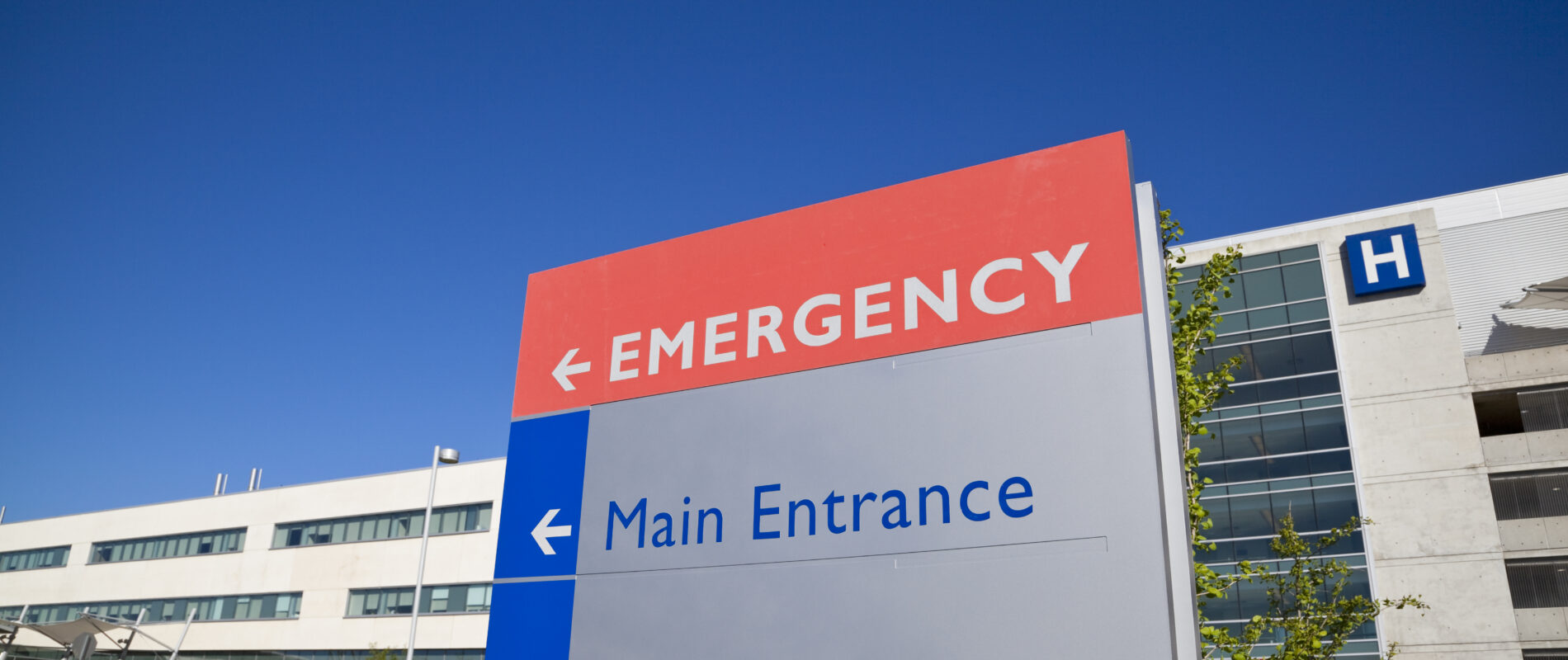When you live abroad, it’s not easy to know what to do in the event of an emergency. If you experience any problems with your health during your IEC permit in Canada, this article is here to help.
In an emergency
In case of an emergency illness or accident, you should attend the ER (emergency room). The emergency department of a hospital stays open 24/7 and treats severe illness and life-threatening injuries.
Your travel health insurance (more on this below) will cover the costs of emergency illnesses, accidents, and repatriation.
If you do not have the money to pay for your treatment upfront, don’t worry—speak to the clinic or hospital about your situation and possible payment plans. If your situation is urgent, they will be medically required to treat you, even if you can’t pay on the day.
The phone number for the emergency services (police, ambulance, fire) in Canada is 911.
If you find yourself in a complicated situation and do not know who to contact, you can ask at the embassy or consulate of your country of citizenship. They will be able to direct you to the relevant service.
Consider registering with your country’s embassy when you first arrive in Canada to be notified in case of any major incident or danger (e.g. a natural disaster) in your home country. For more information, read The arrivals process and your first steps in Canada.
Health insurance
If you’re in Canada on an IEC permit, you will already have travel health Insurance, as insurance is mandatory for activating your permit. (And if you’re in Canada on another type of visa or permit, we always recommend purchasing insurance!).
In the case of a doctor’s consultation (for accident or illness, not regular checkups) or ER treatment, you will usually have to pay the costs upfront. You then request reimbursement from your insurance company.
For more information about insurance, read What to know about travel insurance for your working holiday abroad.
Pvtistes.net has been recommending
Globe WHV since 2005. They have covered thousands of working holiday makers. Their policy has zero excess/deductible, which is the most generous form of reimbursement, plus:
- Unlimited coverage of medical expenses and hospitalisation.
- Tourism outside of Canada is covered up to €150,000 worldwide with no limit on duration of travel.
- Emergency medical expenses are covered during visits to your home country, for up to 30 days and €150,000.
- On-piste skiing and snowboarding are covered.
- In the unlikely event that your application is rejected, you can request a full refund* for your policy.
- Refund* on unused months if you decide to end your working holiday early and go back to your home country (as long as you have a minimum of two months left on your policy).
Click here to learn more or get a quotation.
*Minus a €30 administrative fee.
Access to health care in Canada
The following services are not covered by travel health insurance. You will need to be prepared to pay out of pocket.
Check if you’re eligible for provincial healthcare
If you plan to settle in a specific province/territory, you may qualify for provincial healthcare. Once you’ve applied for provincial healthcare, you will be able to access basic healthcare (e.g. doctor’s appointments) for free.
To qualify, you usually need to prove you will reside in the province for at least six months (by showing a job contract, a residential address, etc.).
Note that you still need to maintain your travel health insurance for the duration of your IEC permit. Provincial healthcare is not a valid replacement and does not offer the same level of coverage (e.g. no repatriation).
Find more information for provincial healthcare in:
Walk in clinics
In Canada, there is a shortage of family doctors (general physicians/GPs). This means it’s unlikely you will be able to register with a family doctor. Instead, most newcomers to Canada attend walk-in clinics to see a doctor.
Walk-in clinics are for non-emergency visits, such as needing to see a doctor for a prescription, a blood test, a health checkup, etc. As the name suggests, you can walk in without an appointment and join the waitlist to be seen same-day.
It’s best to attend the clinic at opening time for the shortest wait possible. Bring your provincial health card if you have one, as the receptionist will ask for your health card details. If you don’t qualify for provincial health care, you will need to pay a fee at the end of your appointment.
Prescriptions are paid for out of pocket, even if you have provincial health care.
There are walk-in clinics all over Canada. It’s best to use Google to find your nearest location, especially as some clinics don’t open every day, or only open for a few hours each day.
If you require a more specialist appointment, the doctor at your walk-in appointment may be able to help with a referral. Otherwise, network to see if any of your friends or colleagues have a recommendation.
You can also search for a specialist yourself, either by researching online or by asking for advice on Facebook—both neighbourhood groups and expat groups are a good way to get names of local specialists.
Other services
Dental care, opticians, osteopaths, etc.
If you regularly need any other form of medical care, be aware that you may need to pay for this out of pocket. For example, routine dental checkups are rarely covered by insurance, but emergency dental is usually covered.
We always recommend you get your contact lens prescriptions, teeth cleanings, chiropractor appointments, etc. sorted in your home country before travelling to Canada to avoid expensive fees. Read Your to-do list before going to Canada for more tips.
Travel vaccinations
If you are planning to travel to another country from Canada (e.g. Mexico, Thailand, India, etc.), you may need to get vaccinations before your trip. Common vaccines recommended for travel include yellow fever, hepatitis A and B, typhoid fever, tetanus, etc.
You will need to get these done at a specific travel vaccines clinic. Expect to pay out of pocket, as any provincial healthcare or health insurance will not cover travel vaccines.
Find out which vaccines are recommended for your travel destination on the Government of Canada website.
Sexual health clinics
Sexual health clinics offer everything from STI (sexually transmitted infection) screenings and birth control to emergency contraceptives and pregnancy testing. Most clinics require pre-booked appointments.
You do not need a doctor’s referral or provincial health card to attend a sexual health clinic. Services are generally free and confidential. Certain clinics can also perform some tests anonymously (e.g. HIV testing).
If you’re in an emergency, you can, of course, go to a regular hospital. In this case, testing will not necessarily be free or kept anonymous.
You can find your nearest sexual health clinic here.
Abortion
Abortion is legal in Canada, but you’ll need to check the rules in your province/territory, as each province has different guidelines (e.g. how many weeks into the pregnancy abortions can be offered).
Click here to find out the rules in your province.

















0 comments
{{like.username}}
Loading...
Load more